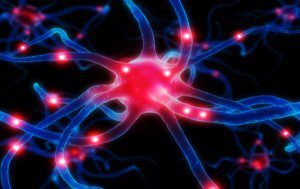… A HEART TO HEART ABOUT YOUR HORMONES-YOUR HEALTH-YOUR CHOICES
By Dr. Anne Lord-Tomas,OB/Gyn –


Symptoms of hormonal imbalance, or the “change of life” include: hot flashes, night sweats, mood changes, change in sleep patterns, depression/fatigue, decreased metabolism, vaginal dryness and significant decrease in sexual arousal/libido. These can come on abruptly or gradually and occur near our average age of menopause, 52, or even earlier for many women. The symptoms can be especially strong in surgical menopause patients, or in women whom have had a total hysterectomy with removal of both ovaries. This age is too early to throw in the towel if it is an issue for you! Hormonal restorative therapy has been proven in multiple trials to decrease osteoporosis and fractures, increase cognitive function, decrease colorectal cancer and improve psychological wellness and mutually beneficial sexual relations – sounds good to me. As years have progressed since that study, many of us as clinicians have advanced our treatment regimen to include the more natural Bioidenticals as an option for our symptomatic patients. There is a long list of FDA approved medications which have proven detrimental side effects yet are still offered to patients. Why then, with theoretically little risk and great benefit, exclude women in whom HRT/BHRT is a valid treatment option? Bioidenticals are plant-derived agents that are biochemically similar or identical to those produced by the ovary or body. The Rx is prepared, assembled and packaged by certified compounding pharmacists and often are custom-made for a patient according to the physician’s specifications. Note, these are in fact a different category than the synthetic or conjugated HRT used during the WHI study. In addition, the routes of administering BHRT are diverse and include sublingual (dissolvable), transdermal, vaginal and sterile pellet therapy(placed by an experienced physician in the office and lasting approx 4-6mos). Recognize that much of the concern for HRT in the past related to the oral dosing. Transdermal routes have even been shown to potentially decrease the incidence of blood clots. Moreover, the N American Menopause Society (NAMS) has recognized in 2012 positive research in the Kronos Early Estrogen Prevention Study (KEEPS) in regards to cardiovascular disease. They note most importantly that low-dose HRT/BHRT in early menopause not only improves depression, anxiety and cognitive function in healthy women – it does so without posing ANY cardiovascular disease risk. Great potential news for our hearts and HRT.
The steroid hormones most commonly compounded in BHRT include DHEA, pregnenelone, testosterone, progesterone, and estrogens (3 different types). The Rx comes from your health care provider and is typically not reimbursed by insurance companies – but not too costly. For many educated patients, the cost is worth their significant symptom relief – and not of great concern compared with their prior costly “OTC” natural supplements which provided no relief. The ratio of the types of hormones in your Rx depends upon your symptoms and lab results which may be monitored intermittently. What many clinicians have grown to love, as well as our patients, is that the Rx is essentially custom-made for them. There is increased safety for women taking BHRT with respect to this ability of dosing and routes of administration. More specifically, compounding has opened the door of testosterone’s potential benefits for many women especially with hypoactive sexual desire disorder and vaginal dryness. What a wake-up call for those of us in whom it may be indicated and in exploring the many shades or levels of fulfillment in a truly healthy relationship!
I inform my patients that HRT/BHRT is “not for everyone and not forever”. Patient selection is key, and reassessing one’s actual indications and any side effects at regular intervals is important as with any medical treatment plan. It is a team approach between you and us. The fact is, the “change of life” doesn’t have to be in a down hill direction. Women should feel comfortable and confident discussing the option of hormonal restoration with their partner, if applicable, and their healthcare providers. Combined with healthy lifestyle choices, regular exercise (this is a must!), good overall health maintenance and open communication in your relationships – HRT/BHRT may be the compliment to your improved quality of life. That’s my theoretical point of view on the 50 shades of hormonal replacement – research it, discuss it, and as with anything, make your own choices.
Anne Lord-Tomas, D.O., FACOOG,
Board Certified OB/Gyn
U FIRST HEALTH
Gynecology & Cosmetogynecology
12640 World Plaza Lane, Building 71, Ft Myers, FL 33907
www.ufirsthealth.com | 239.243.8222
 Southwest Florida's Health and Wellness Magazine Health and Wellness Articles
Southwest Florida's Health and Wellness Magazine Health and Wellness Articles

